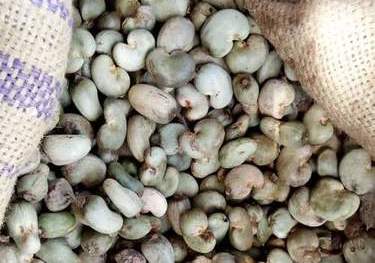Nigeria’s cashew industry stands at a critical juncture, brimming with untapped potential yet stifled by a lack of strategic investment and a coherent development policy. Yunusa Enemali, President of the National Apex of Cashew Farmers, Processors and Marketing Cooperative Ltd., has issued a clarion call for urgent action, emphasizing the transformative power of this “emerging commodity” to revolutionize the Nigerian economy and uplift rural communities. For too long, Nigeria has limited itself to exporting raw cashew nuts, ceding immense economic opportunities to other nations. Enemali argues that a comprehensive approach, encompassing value addition and domestic processing, is crucial to harness the full spectrum of benefits cashew offers – environmentally, economically, and for the health of the nation.
The economic potential of cashew is vast and multifaceted, extending far beyond the export of raw nuts. Enemali highlights the remarkable diversity of cashew-derived products, numbering over 40, with cashew nut shell liquid (CNSL) representing a particularly lucrative avenue. CNSL commands a high market price, trading between $70 and $90 per litre, offering a significant revenue stream for processors. Furthermore, cashew’s versatility allows for the creation of an array of food products, including cashew milk, jam, biscuits, and even cashew brandy. Beyond food, the cashew tree offers valuable resources for industrial applications, with its derivatives used in the production of ethanol, hydraulic fluids, jet oil, and pharmaceutical raw materials. By capitalizing on these diverse applications, Nigeria can unlock substantial economic gains, create jobs, and reduce its reliance on raw material exports.
Enemali emphasizes the environmental benefits of cashew farming, particularly its potential contribution to carbon sequestration. As global efforts to combat climate change intensify, cashew cultivation can play a vital role in carbon credit markets, generating additional revenue streams for farmers and contributing to Nigeria’s sustainability goals. This inherent environmental advantage aligns with international climate action initiatives and offers a sustainable pathway for economic development. Furthermore, the robust domestic market of over 200 million Nigerians presents a significant opportunity to cultivate a thriving local cashew industry, reducing dependence on volatile international markets and ensuring food security.
The health benefits associated with cashew consumption are another compelling reason to prioritize its development. Cashews are a rich source of nutrients, including healthy fats, vitamins, and minerals, contributing to improved dietary diversity and nutritional intake. By promoting domestic consumption and processing of cashews, Nigeria can enhance the nutritional well-being of its population. This focus on health aligns with national health objectives and promotes a more holistic approach to agricultural development, considering both economic and social benefits.
Despite the promising prospects, cashew farmers in Nigeria face significant challenges, including the lack of adequate support and a consistent development policy. Enemali points to the period following the COVID-19 pandemic as a particularly difficult time for cashew farmers, who have received minimal assistance despite years of investment in rural cashew-producing communities. This lack of support underscores the urgent need for government intervention and a clear roadmap for the industry’s future. The absence of a regulatory body, akin to the cocoa board, further exacerbates the challenges faced by cashew farmers, leaving them vulnerable to market fluctuations and exploitation.
Enemali advocates for the swift completion and implementation of the Federal Government’s cashew development roadmap. This roadmap should prioritize the establishment of a Nigerian Cashew Board, emulating the successful model of the cocoa board, to regulate prices, protect farmers’ interests, and drive value addition within the cashew industry. Such a board would provide much-needed stability and support for cashew farmers, ensuring fair pricing, access to markets, and incentives for value addition. This structured approach would empower farmers, stimulate investment, and create a conducive environment for the industry to thrive. The establishment of a cashew board, coupled with a robust development policy, is crucial to unlock the full potential of cashew and transform Nigeria into a global leader in value-added cashew exports. This transformative vision holds the key to revitalizing rural economies, creating jobs, and positioning Nigeria as a major player in the global cashew market. The time for action is now, to seize the opportunity presented by cashew and pave the way for a more prosperous and sustainable future.














